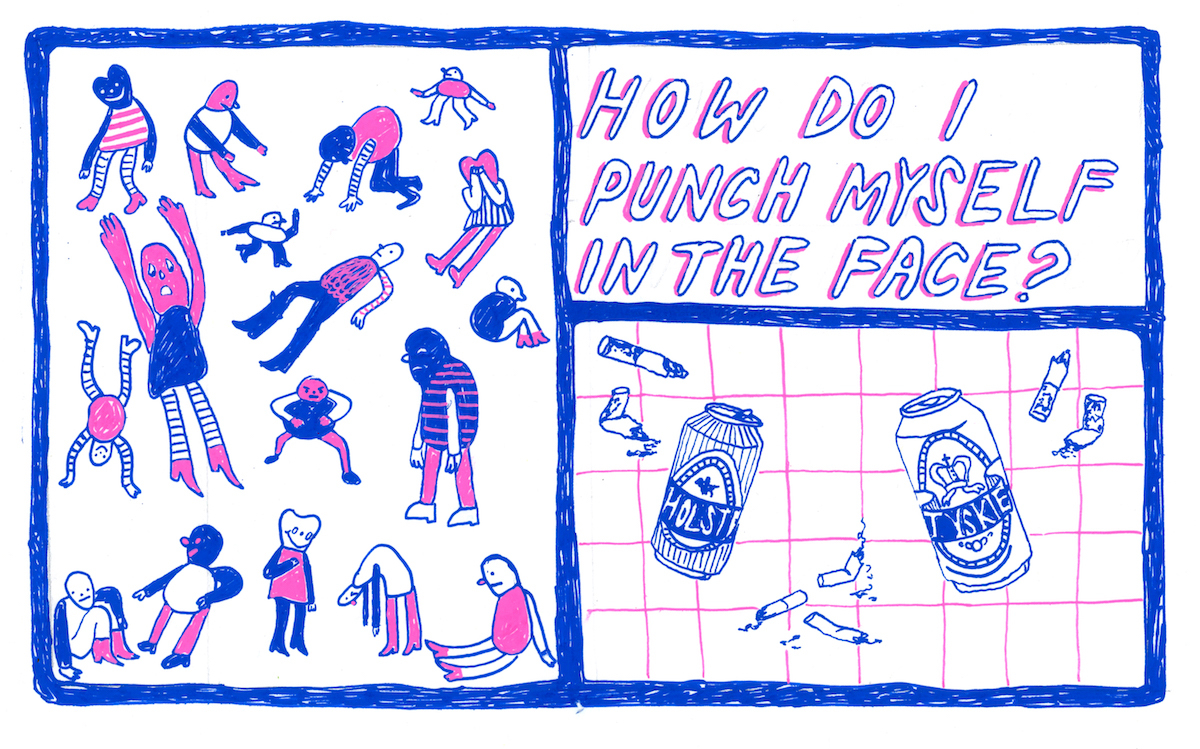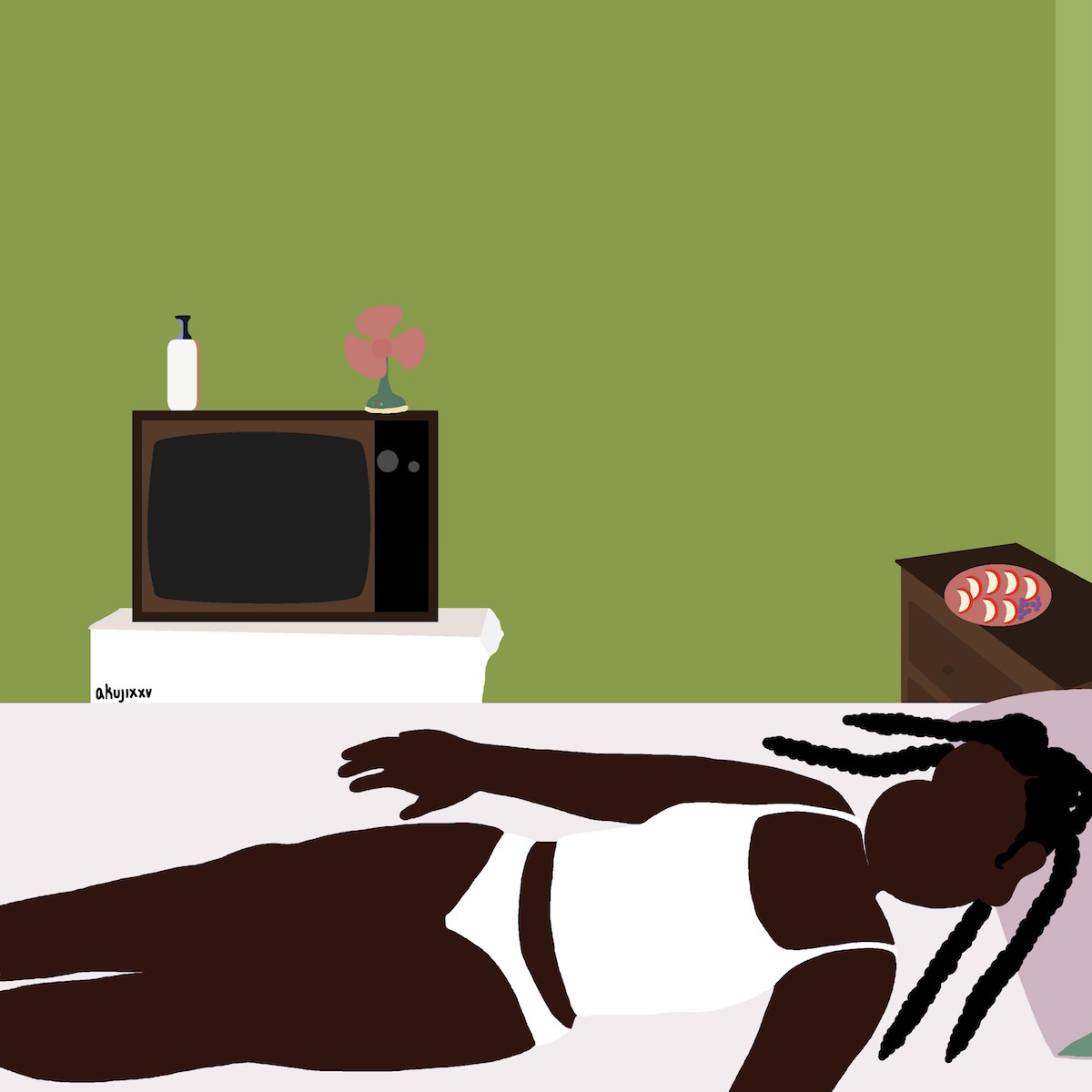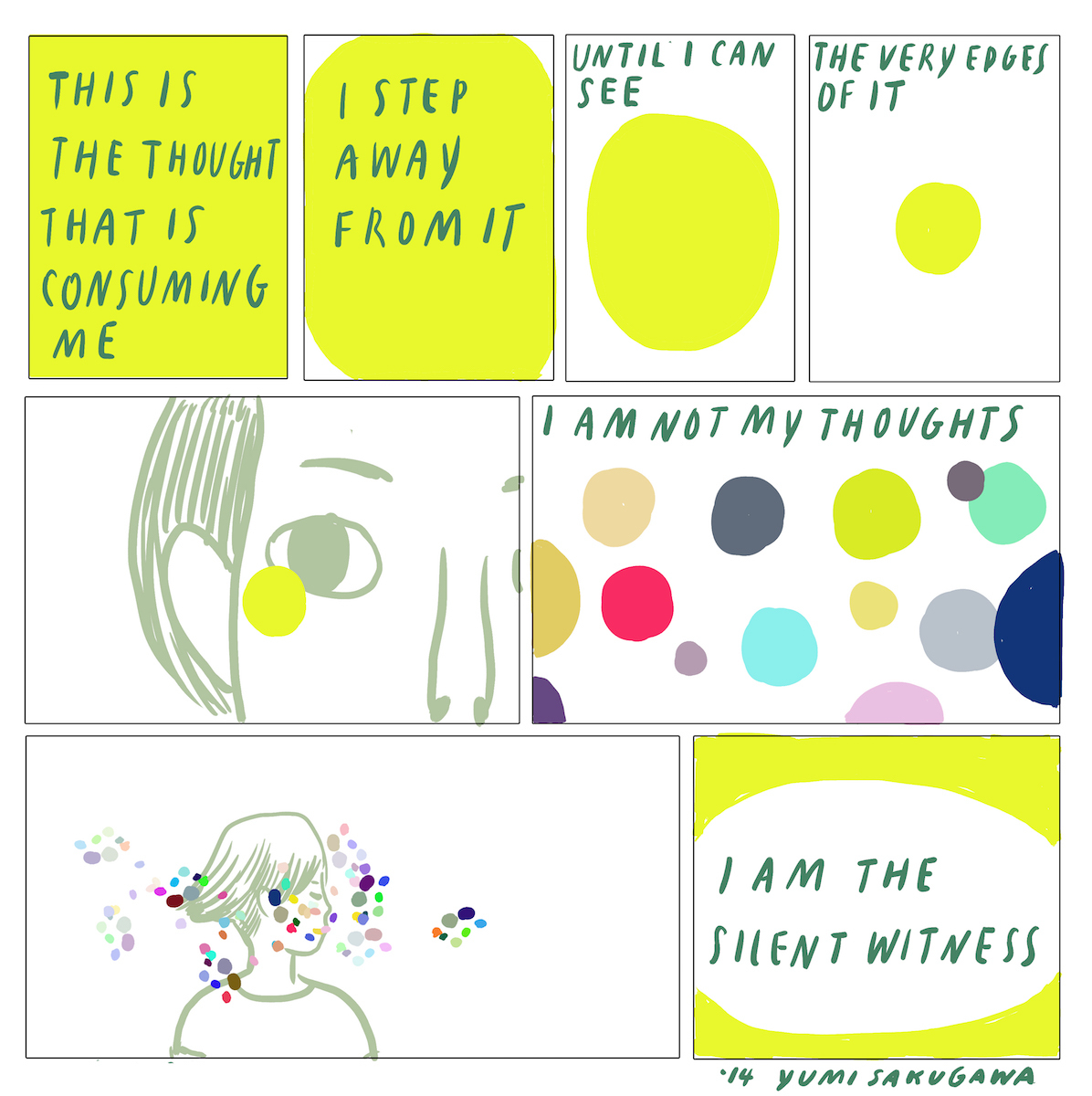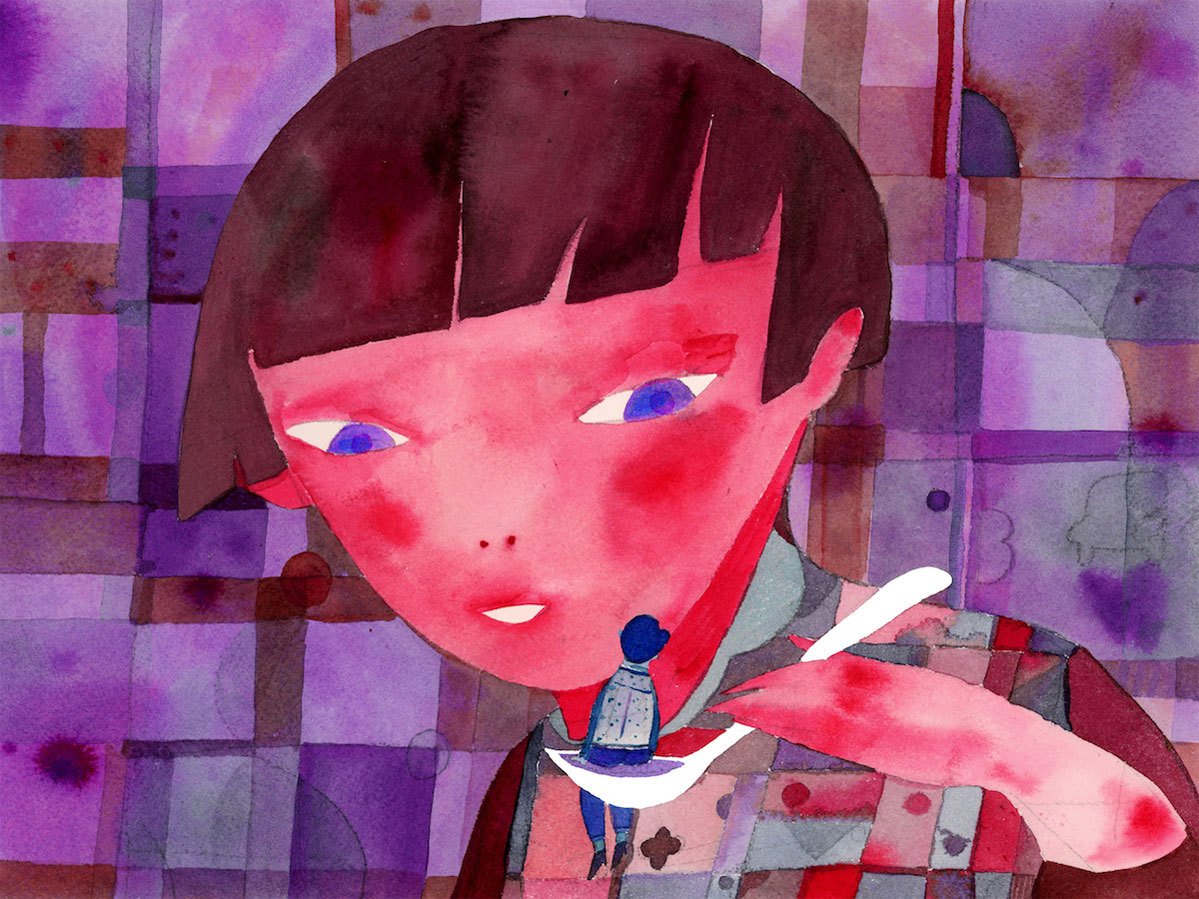Doll Hospital is a bi-annual art and literature journal on mental health. Made by people with mental health issues, for people with mental health issues, it serves as a paper and glue safe-haven from the toxicity of online comments, something to stick in your back pocket and flick through on those days when just breathing can feel like an accomplishment. It’s intersectional – not in some box-ticking, quota-filling way – but because mental health is tied to race, as it is to class, to gender, to sexuality, to disability and just because you don’t look like something out of The Virgin Suicides doesn’t mean you shouldn’t have a voice. More than anything though, it says that it’s okay. It’s okay if your day doesn’t go as planned. It’s okay if you feel differently than others. It’s okay to go at your own pace. It’s okay, it’s okay, it’s okay, it’s okay. Because sometimes being sad is okay. As part of Mental Health Awareness Week, we spoke to the journal’s creator Bethany Rose Lamont about her thoughts on growth, survival and standing unapologetically in your own trauma.

Hello Beth. What do you do and why you do it?
I’m the founder and editor in chief of Doll Hospital, an art and literature print journal created by and for those dealing with mental illness. Mental health is a vast and shifting subject that is intimately connected to a person’s lived experiences. Everyone’s experiences with mental illness are incredibly different and we look to celebrate that vastness by bringing together some of these stories so others who are also struggling may feel less alone.
When was Doll Hospital first created? Did the project come from your own personal experience?
Doll Hospital was created in May 2014 so it’s turning two years old! It very much came from my own personal struggles with mental illness. At the time I was struggling with suicidal ideation, I was very isolated and scared and felt like I had no other way to express these difficult feelings outside of some serious dubious tweeting! You know pretty standard ‘I h8 myself and want to die’ stuff! Pretty soon I realised that social media wasn’t the best place to unpack this stuff and my friends were telling me to quit it as it was freaking everyone out. I realised I needed to not only connect with others and look beyond myself, but that a space was needed beyond social media and ‘harrowing personal essays’. And this is how Doll Hospital was born basically!
Why did you choose print as your medium as opposed to online?
The internet is brilliant and so much of Doll Hospital owes itself to online influences, I mean I discovered zine culture through tumblr and so much of Doll Hospital’s early staff were friends I’d made through blogging. However, the internet in its pressure for constant content production and hyper-accelerated nature can also be a source of anxiety, self-loathing even. I wanted Doll Hospital to be a quiet space away from the noise.

What you think the biggest misconception facing mental health today is?
That’s a tough one to call. I am concerned that in an effort to ‘rebrand’ mental health as something free from stigma (which is certainly a worthy cause don’t get me wrong!) we forget that mental health does not exist in a vacuum and those in our society who are most isolated, most marginal, are the most vulnerable to mental health struggles as a result of trauma, poverty and violent discrimination. I get it’s quite appealing to see mental illness as this disembodied, contextless thing but I don’t think we can talk about mental health without questioning why we have created a society that so many people want to exit themselves from.
How important is it that the journal takes an intersectional focus and how do you ensure a wide range of experiences?
The breadth and depth of narratives we house in the journal comes not from obligation but from necessity. I do worry that at times Professor Kimberlé Crenshaw’s intersectionality model has been appropriated and used as a buzzword in mainstream media narratives at times, but this does not change the fact that her work is an incredibly great influence. We can’t truly understand the reality of mental illness without also centring the intersecting oppressions that make life unlivable for so many.
In what way do portrayals of mental health in fiction perpetuate a certain narrative around the issue?
The influence of media portrayals on mental health cannot be underestimated, especially for young women whose lives are so often shaped by the images that surround them (and yes this is coming from someone who had a Virgin Suicides aesthetic tumblr as teenager!). I can’t say how many submissions we get by mentally ill young women who feel like their experiences are less legitimate because they don’t match up to Kirsten Dunst on a unicorn or whatever, and that worries me, that these fictional stories are seen as ‘more real’ than our lived experienced, and how this perpetuates a vision of mental health that is intrinsically tied to youth, thinness, whiteness and conventional ‘beauty’. This issue is so huge I actually started a documentary project on this subject called Sad Girl Cinema with my friends (and DH contributors) Claire and Cat.
However, I do worry that these conversations on romanticising mental illness go in a slightly dodgy direction. If we want to talk about the problems surrounding these movies and stories we need to be punching up, looking at how these stories are perpetuated on an institutional scale for corporate profit, not using it as a thinly veiled excuse to hate on teenage girls for their love of Lana Del Rey! Because even though these stories are highly flawed often they mean the most to mentally ill young women and girls. Lana Del Rey may aestheticize emotional suffering but she also helped carry me through my own periods of emotional suffering. I know basically the whole of The Virgin Suicides off by heart and Winona Ryder in Beetlejuice was the first example for me of a young person addressing suicidal thoughts. It’s corny but it’s also complicated y’kno?

The NHS has been in the news an awful lot of late due, in no small part, to cuts to mental health services. In what way are those cuts failing the most vulnerable in our society?
I think it’s no secret that at this point austerity has a body count. The landscape of 21st century Britain is one of grave inequality and in such a hostile landscape people are choosing to take their own lives rather than exist a moment longer in it. Because when unemployment, homelessness and poverty is that great the most marginalised within our society simply don’t see a future with them in it because every corner, every supposed safe space is telling them how desperately unwanted they are. I keep thinking of a piece for an upcoming issue of Doll Hospital by Jade Davis, which reads as an open letter to George Osborne. This quote comes to mind especially:
“The cuts you’ve made have an impact, and I’m sure you’ve heard thousands of stories like mine. But I worry still. Emergency services find themselves unable to respond to urgent calls as they’re not quite ‘severe’ enough. Under your government, a person must have a rope around their neck or a gun to their chest before help is even considered. Your government has redefined what a crisis ought to be, for it to be considered a crisis.
I am 21 years old. I am chronically mentally ill. I am acutely aware that one day, I might not bounce back from being knocked down that hole. That day might be tomorrow or in thirty years time. But when it does, I can assure you, Chancellor, that your name will be written at the top of the note left laying beside me.”
So what needs to change in order to create a society in which people can cope better?
There’s no point imagining a magical mental health utopia as we need to work with what we’ve got here. It’s easy to feel hopeless and like things are out of our control but each one of us holds the power to instigate social change and cultivate a culture more focussed on kindness and creativity, rather than capitalist profit and individual success. What is the one struggle in your life that you feel is unspeakable and isolating? Work with that, because I guarantee you that supposedly isolating experience is what will connect you in community with others to create something to make the space around you slightly less sharp, slightly less cruel.
What would you say to someone who thinks they may be suffering from mental health issues?
I love you and I believe in you. Your first instinct might be to keep this locked up, as some kind of closely guarded secret but this is a terrible idea, trust me. The biggest secret of mental illness is that we are all suffering in some shape or form, just some of us feel it more deeply, and for a longer period of time than others. Talk to your friends, talk to your dog, talk to your plant, talk to your journal. Channel all your overwhelming brain feelings through art and writing or whatever medium you’re feeling, not coz you’re a tortured artist because we all know that’s bullshit, right? But because it’s fun and cathartic and it’ll help you connect with others, because there are others who feel like this I promise. Remember the things that bring you joy, don’t undermine them, don’t forget about them, even if it’s just eating nachos and playing Pokemon, that stuff is sacred.
Mental health is scary and shitty and yes this is a landscape full of deeply unhelpful people, bad days and weird medication side effects but there is a future made just for you and I can’t wait for you to see it. We can get coffee and you can tell me about your day and we can share anecdotes about terrible doctor’s appointments and laugh about them. Because yes, the world is garbage trash so much of the time, but we need to keep on living, we need to keep on pushing.
Issues One and Two of Doll Hospital Journal are still available in digital versions; the third issue will be out this summer.
This week, Mental Health Awareness Week takes place in the UK, in an effort to increase the conversation around the much neglected subject. To coincide, all week i-D.co will share voices from the fashion industry and beyond, discussing their thoughts, feelings and experiences of suffering from mental health issues.
To anyone looking for support, Samaritans, Mind and Rethink Mental Illness all offer helplines and advice to those in need. Mind and beat offer support and advice for those worried about eating problems.
Credits
Text Matthew Whitehouse
